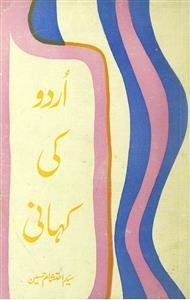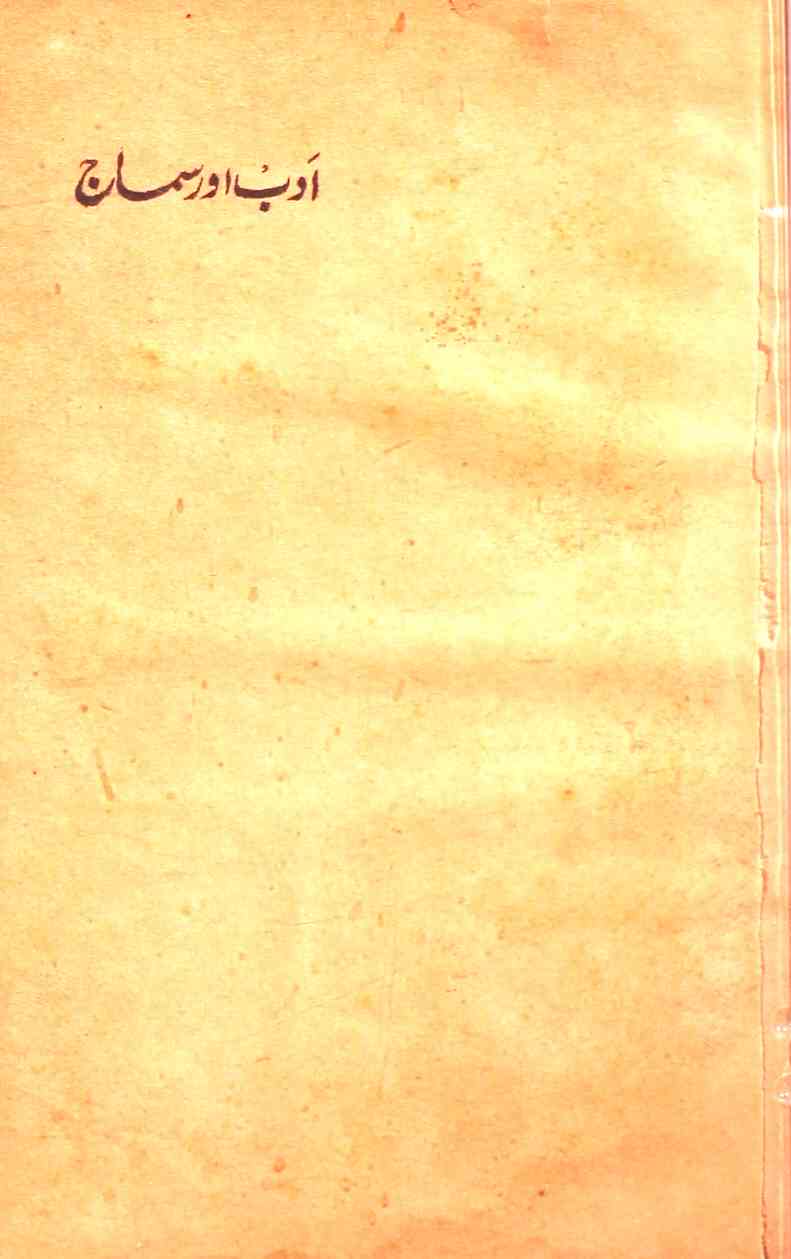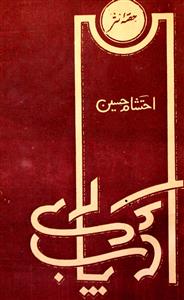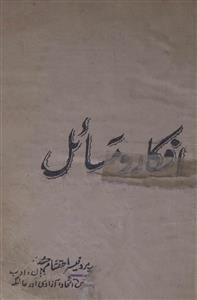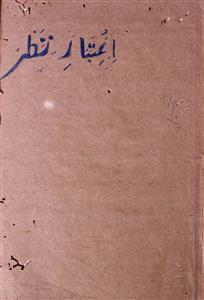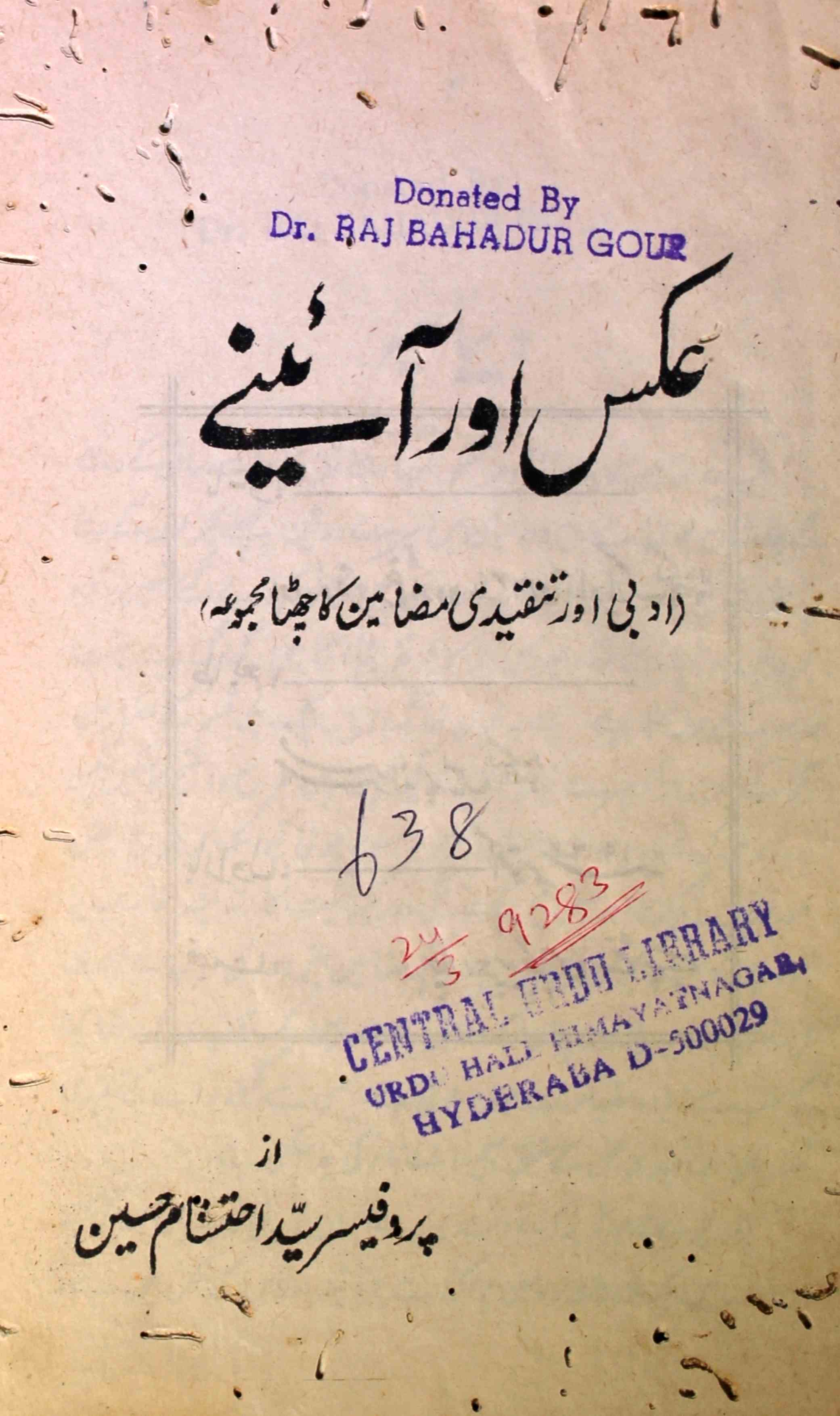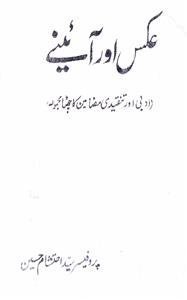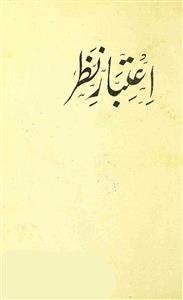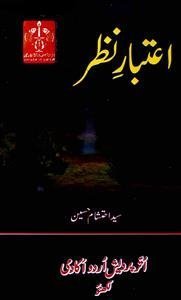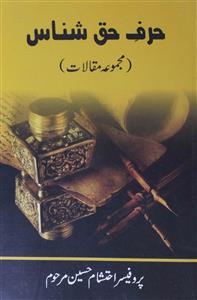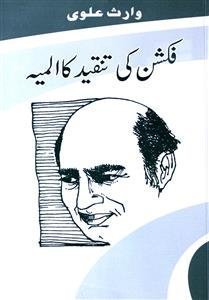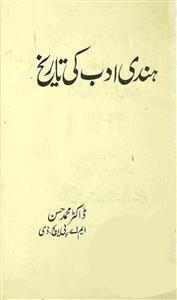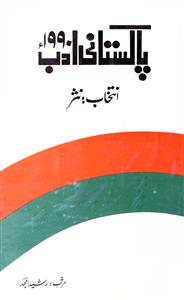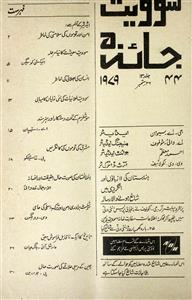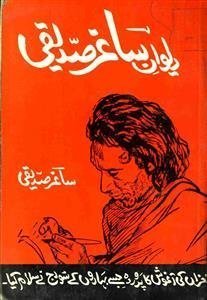 For any query/comment related to this ebook, please contact us at haidar.ali@rekhta.org
For any query/comment related to this ebook, please contact us at haidar.ali@rekhta.org
About The Book
مادری زبان،انسانی شناخت،تشخص اور کردار سازی میں کلیدی کردار ادا کرتی ہے۔ بچوں کی ابتدائی تعلیم کے لئے سب سے موثّر زبان، مادری زبان ہے۔مادری زبان میں تعلیم سے بچّوں کی تحقیقی اور تخلیقی صلا حیتوں میں اضافہ ہوتا ہے،مادری زبان صرف زبان یا لسّانیت نہیں ہوتی، بلکہ پوری ایک شناخت ہوتی ہے۔ ایک پوری تہذیب، تمدّن، ثقافت، جذبات و احساسات کا حسین امتزاج ہوتی ہے۔ مادری زبان میں خیالات ومعلومات کی ترسیل اور ابلاغ ایک قدرتی اور آسان طریقہ ہے۔ سوچنے اور سمجھنے کا عمل جو کہ سراسر انسانی ذہن میں تشکیل پاتا ہے، وہ بھی لاشعوری طور پر مادری زبان میں ہی پراسیس ہو رہا ہوتا ہے۔ احتشام حسین صاحب کا یہ کتاب لکھنے کا مقصد یہی کہ ہم اپنی مادری زبان اردو کی تاریخ اور اس کے ادب سے واقف ہوں اور اردو ادب کی صحیح رفتار کا اندازہ لگا کر ادب سے اور زیادہ مزے لیں ،جو لوگ اردو زبان سے واقف نہیں وہ اردو زبان کی تاریخ سے واقف ہوں، مختصر یہ کہ احتشام حسین نے اس کتاب میں اردو کی تاریخ کو نہایت ہی آسان اور مختصر انداز میں بیان کیا ہے اور قاری کو اس بات پر مجبور کیا کہ ہم اپنی مادری زبان کی تاریخ سے واقف ہوئے بغیر اپنی اساس کو پہچان نہیں سکتے۔
About The Author
Sayyad Ehtisham Hussain, former Chairman, Department of Urdu, Allahabad, UP, was one of India’s top Marxist critic of Urdu who published more than half a dozen volumes of his literary essays, besides several other books.
He was born in 1912 in Mahul, a small village in Azamgarh. He attended high school on Azamgarh, and then studied at Allahabad for his M.A. His first assignment as a teacher of Urdu was at Lucknow University in 1938. From there he went on a study tour of U.S. in 1952, supported by the Rockefeller Foundation. The impressions of this travel are told in his travelogue ‘Sahil Aur Samandar’. In 1961 he was appointed to the Urdu chair at the Allahabad University.
Sayyad Ehtisham Hussain has written extensively on classical and modern literature. He has been one of the lending lights of the Progressive Writers Movement and has given Urdu criticism a new basis and a new direction. His prose presents him as a calm, quiet, and detached writer; actually, he possesses an interesting, agreeable, and charming personality. His Urdu is close to the basic common core speech. The use of high-flown or ornate language does not find favor with him, and his prose is marked for simplicity, candor and insight.
 For any query/comment related to this ebook, please contact us at haidar.ali@rekhta.org
For any query/comment related to this ebook, please contact us at haidar.ali@rekhta.org
